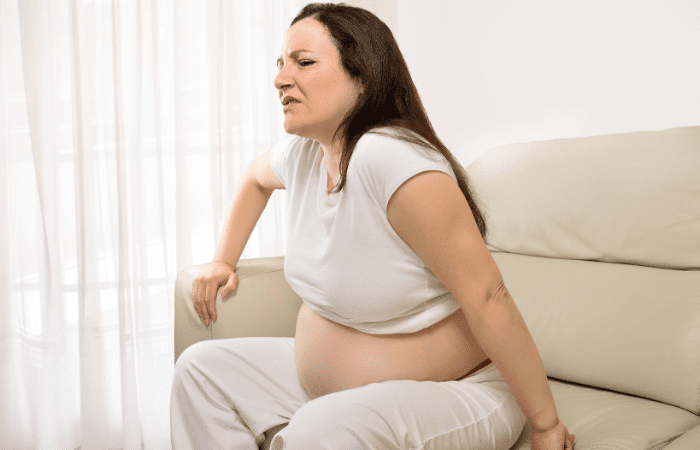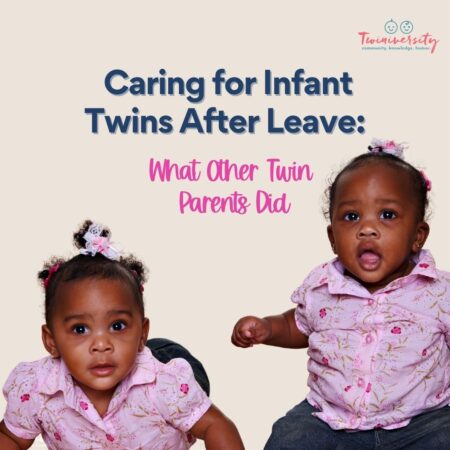Last updated on March 8th, 2024 at 09:31 am
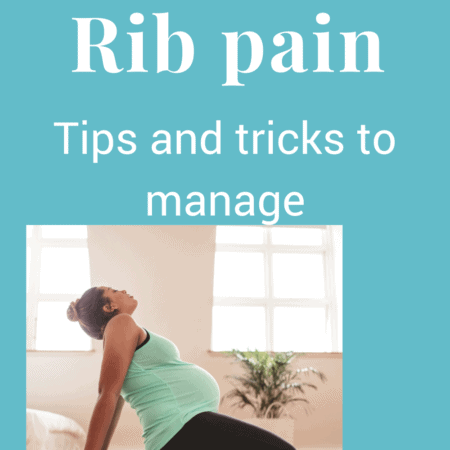
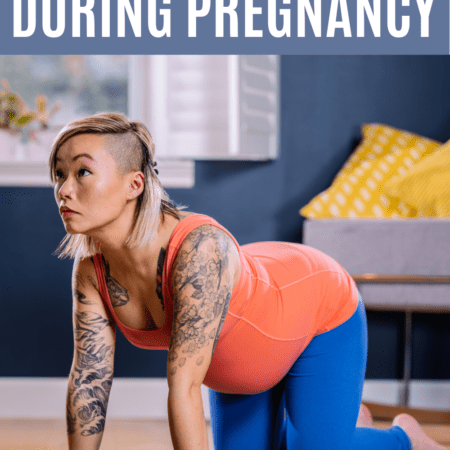
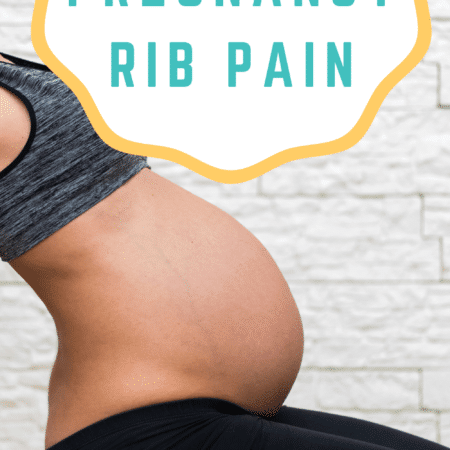
Have you been experiencing pregnancy rib pain? Learn what might be causing it and some effective strategies to get relief from the discomfort.
Nothing here should be taken as medical advice. If you have questions or concerns, ALWAYS contact your healthcare provider.

It is no surprise that during pregnancy your body goes through a lot of changes. Many of which can cause discomfort. It is normal to experience fatigue, backaches, and tenderness in your breasts, but what about pregnancy rib pain?
If you’re pregnant and experiencing rib pain, you may be wondering if it’s normal. Rib pain during pregnancy is common, especially in the third trimester as your baby grows. But the pain can start pretty early on in your pregnancy, too.
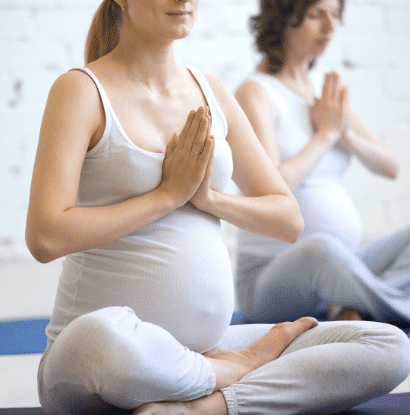
What Can I Do for Rib Pain During Pregnancy?
You might be able to prevent some rib pain by staying active and exercising during your pregnancy. Staying active and exercising can help you stay comfortable and prevent excess weight gain which can contribute to the pain.
If staying active just isn’t enough (sometimes it’s not), here are some additional remedies:
1. Visit a Chiropractor
A chiropractic adjustment can help make sure your skeletal system is in the correct position, especially as the stress of pregnancy shifts your body. An adjustment may also help your baby settle into a lower position, taking some pressure off of your ribs which may alleviate pregnancy rib pain.
2. Use an Exercise Ball
Those oversized exercise balls are lifesavers during pregnancy, especially for rib pain. Lay your back on the ball and slowly roll back and forth.
3. Yoga
Gentle stretching, like those associated with yoga, is an effective way to keep your muscles loose and alleviate aches and pains in your ribs, back, and joints.
Is Rib Pain a Sign of Preeclampsia?
Rib pain during pregnancy can usually be written off as just “normal” discomfort. But for some women, it may have an underlying, more serious cause. For instance, pain occurring in the upper right abdomen can be a sign of preeclampsia.
Seek immediate medical attention if you are experiencing sudden, severe rib pain and have any of the following symptoms:
- dizziness
- seeing spots
- bleeding
- headaches
- nausea and vomiting
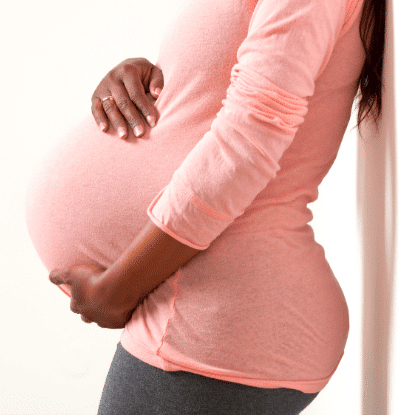
What Is Rib Flare in Pregnancy?
Once you enter your third trimester, and as your baby becomes ever larger, the uterus expands right up beneath your rib cage. The lowest few ribs expand and flare out in response to your growing baby, putting them into a position they have never been before. This is called flared rib. Flared rib is where the lower portion at the front of your rib cage protrudes out, causing you to actually see your bottom ribs popping out! You may have discomfort on either side or both sides, though it is commonly worse on the right side of the ribs.
Rib flaring during pregnancy can cause the greatest pregnancy rib pain when you are in a sitting position. Try to make sure that you sit up straight with your shoulders back. Slouching will compress your abdomen and result in more pain. Change positions frequently and avoid sitting on low chairs and other positions that bring your ribs close to your pelvis. You may find temporary relief from this type of pregnancy rib pain by lifting the arm on the affected side and bending sideways away from the pain or sit cross-legged and rest your hands on your head. This lifts the diaphragm and rib cage up off the uterus providing mild comfort.
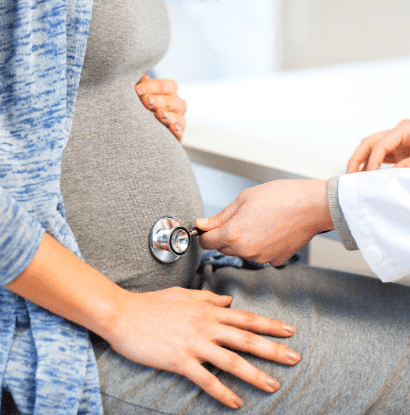
When Should I Worry About Pregnancy Rib Pain?
If you are having rib pain that goes through to your back, or burning or pain with urination, you should contact your healthcare provider. This could be an indication of a urinary tract infection. You should let your doctor know if you are in any pain during your pregnancy, even if you believe it’s normal. You should contact your doctor right away or go to the emergency room if:
- You are having constant pain.
- The pain comes on suddenly.
- It is getting worse.
- You believe the pain is not normal.
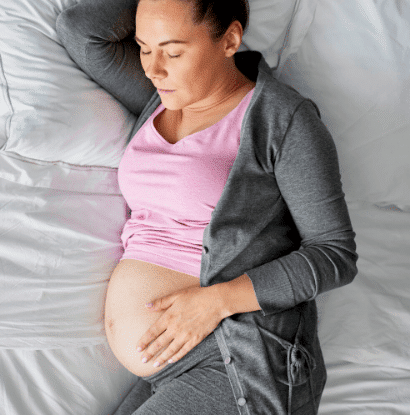
Can Sleeping Wrong Cause Rib Pain?
Sometimes that pain under the right rib cage during early pregnancy is nothing more than an indication you slept wrong. Your sleeping position may cause pain in your ribs and other parts of your body. As your pregnant body grows, you’ll be spending most nights sleeping on your side. Extended side sleeping can cause back, shoulder, rib, and hip discomfort. Try to sleep in a straight position rather than curled up. Sleeping on your side puts added stress on your hips, ribs, and lower back. Many women find that using a pregnancy pillow gives support to the back and the belly at the same time, making for more restful sleep.
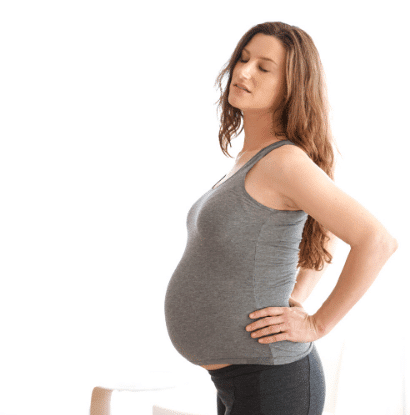
How Do You Know if Rib Pain Is Muscular?
Pregnancy is full of uncomfortable symptoms. One common complaint is pregnancy rib pain. The growing fetus often causes most of the aches and pains around the ribs, due to their position in the womb. Less commonly, medical complications or muscle strains can cause rib pain, so it is important to know the warning signs.
Symptoms of Muscle Strain Include:
- Sharp/Stabbing Pain: You may feel a sharp pain at the time of injury, or it may come on more gradually. The pain will get worse when you twist, stretch, breathe in deeply, cough, or sneeze.
- Tenderness: The area of the strain between your ribs will be sore to the touch.
- Difficulty breathing: Because it’s so painful to breathe, you may find yourself taking small, shallow sips of air. This can leave you short of breath.
- Swelling: A partially torn or strained muscle will become inflamed. You may see some swelling between and around the affected ribs.
- Muscle tightness: The injured muscles may feel tight when you breathe, reach, or twist.
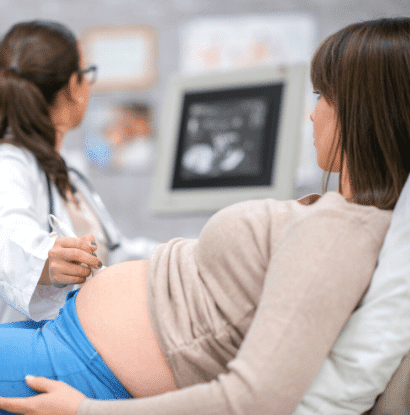
These symptoms can be similar to those of more serious problems; gallstones, a UTI or Preeclampsia, for example. If experiencing any of these symptoms, schedule an appointment with your doctor so they can assess your symptoms and determine the underlying cause.
When you’re expecting, it’s not unusual to have to stop to catch your breath more often or to feel some aches and pains in your ribs. These symptoms can be annoying and intense or just bothersome. Most of the time these issues are normal and rarely a cause for concern.
However, you should always discuss all your symptoms with your doctor, even if you believe they are just part of a normal pregnancy. It’s always best to be safe.

Have you taken your expecting twins class yet? We offer a great class on demand so you can take it on your own schedule! There are so many video modules covering everything from your twins’ baby registry to your first week at home with twins!
Sign up today to get started before your twins arrive.

